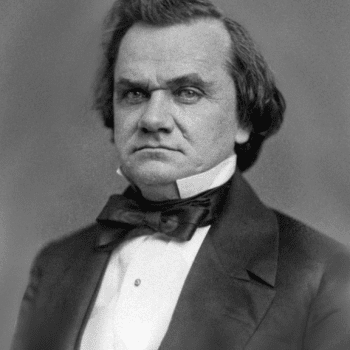Today’s political problems come from both liberals and conservatives being too nostalgic about the 1950’s. Liberals miss the dominance of unions, job security, and good wages. Conservatives miss the strong families, social stability, and conservative values. None of that is possible anymore, and yet both sides are fixated on bringing part of that back, while still opposing the other part. So argues a new book by Yuval Levin, reviewed by Michael Gerson after the jump.
I would just add that both sides are also nostalgic for the ’60s. Now even conservatives are anti-establishment, and the left is nostalgic for the good feelings of the civil rights movement and is seeking to replicate that by championing other groups.
I would also propose developing policies that restore what was good about the 1950s from both sides: economic security for ordinary workers plus conservative social values, two areas that might themselves be related to each other. Being sure to include minority groups in both the prosperity and the values. Do you think both sides could rally to that cause?
From Michael Gerson, Republicans and Democrats are fixated on nostalgia — and have deformed our politics – The Washington Post:
How in the world did we get to this state of disunion? One unexpected, compelling explanation comes from Yuval Levin, in his new book “The Fractured Republic.” Levin faults a “perverse and excessive nostalgia” by baby boomer politicians for the America of the 1950s and 1960s. For liberals, this was a golden age of job security, growing wages, high tax rates and relative economic equality. For conservatives, it was a promised land of family stability, community strength and conservative social norms. Levin describes this as a “consolidating America” in which industrialization, restricted immigration and the shocks of depression and war led to greater social, political and economic cohesion than the United States had ever seen.
But this postwar period was also an inflection point. The second half of the 20th century saw the “deconsolidation of America,” with growing social libertarianism, vastly expanded immigration, the globalization of labor markets, the growth of information technology and general abundance. These were centrifugal forces that made both our economy and our culture far less cohesive and centralized.
Both right and left, in Levin’s account, miss the cohesion of mid-century America, and yet both are also relieved (in different ways) to be freed from those forces. “The right generally longs for cultural consolidation,” Levin told me, “but is glad for the economic deconsolidation. And the left longs for economic cohesion but is glad of the cultural liberation.” Each side is convinced the other has achieved the greater victory and thus believes the country is going to hell.
This backward-looking approach has deformed American politics. “Because both parties are channeling that nostalgia,” argues Levin, “their objectives and priorities tend to be embodied less in concrete policy proposals and more in vague and aimless frustration, which often manifests itself as populist anger.”
Levin warns of a real risk: a kind of general deconsolidation that becomes extreme individualism, leaving men and women isolated, aimless and alone. The answer, however, is not to recapture the culture and reimpose economic or social cohesion (which Levin regards as a hopeless task). It is to cultivate community in the space between the individual and the government. “The middle layers of society,” argues Levin, “where people see each other face to face, offer a middle ground between radical individualism and extreme centralization.”
Instead of desperately trying to go back in time to recover lost unity, Levin urges citizens to look forward — as well as downward, to improve the cultural patch around them. This future orientation may seem like an odd message for a conservative — and it is all the more powerful for coming from one. The goal is not to make America great . . . again. It is to make America great in a distinctly 21st-century way.
[Keep reading. . .]
















